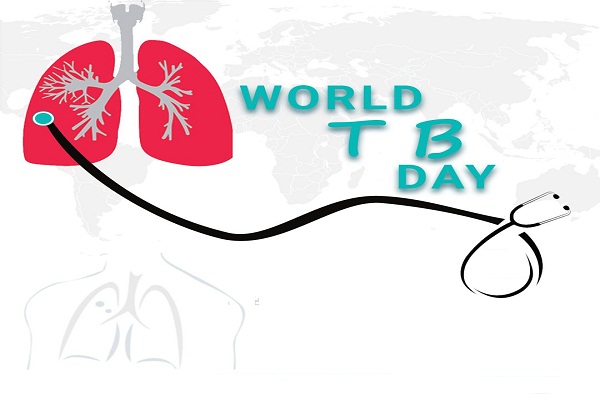
Most of us know that tobacco is harmful to health. Over 60 lakhs of deaths are recorded due to direct tobacco use globally, while nearly 8.9 lakh are because of second-hand smoke exposure. By 2030, smoking-related deaths are estimated to increase to 80 lakhs. According to the Annual Review of Public Health, an estimated one billion lives will be lost prematurely by 2100.
 So, what kills”nicotine or the tar in cigarettes? More than the addictive nicotine, the smoke is harmful as it contains carcinogens and toxins that come from tobacco combustion. People smoke for the nicotine, but they die from the tar, as per the British Medical Journal. Hence, it is imperative that the Government ban tobacco or else reduce its harmful effects at least.
So, what kills”nicotine or the tar in cigarettes? More than the addictive nicotine, the smoke is harmful as it contains carcinogens and toxins that come from tobacco combustion. People smoke for the nicotine, but they die from the tar, as per the British Medical Journal. Hence, it is imperative that the Government ban tobacco or else reduce its harmful effects at least.

In 2003, the World Health Assembly, the decision-making body of the WHO had adopted the Framework Convention on Tobacco Control (FCTC) that has been included in Sustainable Development Goal 3 of WHO. One of the goals pertaining to tobacco says, By 2030, reduce by one-third premature mortality from non-communicable diseases through treatment and prevention, while promoting mental health and well-being. Henceforth, it is highly significant to control the tobacco consumption. And, this is where harm reduction products like e-cigarettes come into play.
Harm reduction is essential to the definition of tobacco control as specified in Article 1(d) of WHO FCTC, which has defined tobacco control as a range of supply, demand and harm reduction strategies that aim to improve the public health by reducing their tobacco consumption. It involves the use of non-combustible products such as vaping like e-cigarettes, heated tobacco products or smokeless tobacco. Collectively, such products are called Alternative Nicotine Delivery Systems (ANDS) and do not involve burning of tobacco leaf or smoke inhalation.
E-cigarettes are likely to be beneficial to UK public health. Smokers can therefore be reassured and encouraged to use them, and the public can be reassured that e-cigarettes are much safer than smoking, concluded Royal College of Physicians report published in 2016.

An expert review of e-cigarettes published by Public Health England, the United Kingdoms largest public health agency states that vaping poses only a small fraction of the risk of smoking and switching completely to it conveys substantial health benefits. It said that e-cigarettes could be contributing to at least 20,000 successful new quits per year and possibly many more.
A UK parliamentary inquiry into e-cigarettes reported on August 2018 that e-cigarettes present an opportunity to significantly accelerate already declining smoking rates, and thereby tackle one of the largest causes of death in the UK today. E-cigarettes are substantially 95 percent safer than conventional cigarettes as they lack the tar and carbon monoxide of conventional cigarettes”the most dangerous components. Moreover, it has proven challenging to measure the risks from second-hand e-cigarette vapor because it is negligible and substantially less than that of conventional cigarettes. As per Annual Review of Public Health, ANDS have the potential to disrupt the 120-year dominance of the cigarette and challenge the field on how the tobacco pandemic could be reversed, if nicotine is decoupled from lethal inhaled smoke.
But what is the WHO stand on these systems? WHO has issued a report of the Conference of Parties to the WHO Framework Convention on Tobacco Control held on 21stJuly 2014 wherein it was observed that smokers will obtain the maximum health benefit if they completely quit both tobacco and nicotine use. In fact, Article 5.2(b) of the Convention commits Parties not only to preventing and reducing tobacco consumption and exposure to tobacco smoke but also to preventing and reducing nicotine addiction independently from its source. Therefore, while medicinal use of nicotine is a public health option under the treaty, recreational use is not. It was also observed that The rapid growth of ENDS use globally can neither be dismissed nor accepted without efforts to appropriately regulate these products, to minimize consequences that may contribute to the tobacco epidemic and to optimize the potential benefits to public health.
India, being a signatory to the WHO FCTC is bound by its policies. On August 2018, the Union health ministry, instead of banning tobacco in all forms, banned the sale of e-cigarettes in India. It has issued an advisory, The states/UTs are advised, in order to prevent the initiation of ENDS by non-smokers and youth to ensure that any Electronic Nicotine Delivery Systems (ENDS) including e-Cigarettes, Heat-Not-Burn devices, Vape, e-Sheesha, e-Nicotine Flavoured Hookah, and the like devices that enable nicotine delivery are not sold (including online sale), manufactured, distributed, traded, imported and advertised in their jurisdiction. The ministry advisory was based on 2014 round table discussion held on 4th July on electronic nicotine delivery system cited that available scientific evidences indicate that any of these ENDS and similar technologies that encourage tobacco use or adversely impact public health are hazardous for an active as well as passive users.
However, the current 2018 advisory does not enlist these references and these references also have not been communicated to the doctors or any of the association. When it comes to smoking cessation it is the doctors who decide whether to use less harmful products. Also, the advisory is silent about need for regulations.
However, the Heart Care Foundation of India (HCFI) feels that based on available evidence, using e-cigarettes is less harmful than smoking cigarettes though the health effects of its long-term use are unknown.
It has always supported any smoker who is considering quitting, no matter what approach they use. To help smokers quit, it recommends that clinicians advise their patients to use Drug Controller General of India-approved cessation aids that have been proven to support successful quit attempts.
HCFI recommends that doctors support all attempts to quit the use of combustible tobacco and work with smokers to eventually stop using any tobacco product, including e-cigarettes. Some smokers, despite firm advice from the doctor, will not attempt to quit smoking cigarettes and will not use approved cessation medications.
These individuals should be encouraged to switch to the least harmful form of tobacco product possible. Switching to the exclusive use of e-cigarettes is preferable to continuing to smoke combustible products. However, these individuals should be regularly advised to completely quit using all tobacco products. Also, HCFI strongly discourages the concurrent use of e-cigarettes and combustible cigarettes, a behavior that is far more detrimental to a persons health.
HCFI also recommends that the government instead of banning should regulate harm reducing nicotine products till tobacco and nicotine is absolutely banned in the country.
So, dont start using any tobacco product. Smokers who cant quit may be encouraged to switch to e-cigarettes.
(Disclaimer: The writer is Dr. K K Aggarwal, President, Heart Care Foundation of India. Views expressed are personal opinion.)
Be a part of Elets Collaborative Initiatives. Join Us for Upcoming Events and explore business opportunities. Like us on Facebook , connect with us on LinkedIn and follow us on Twitter , Instagram.












